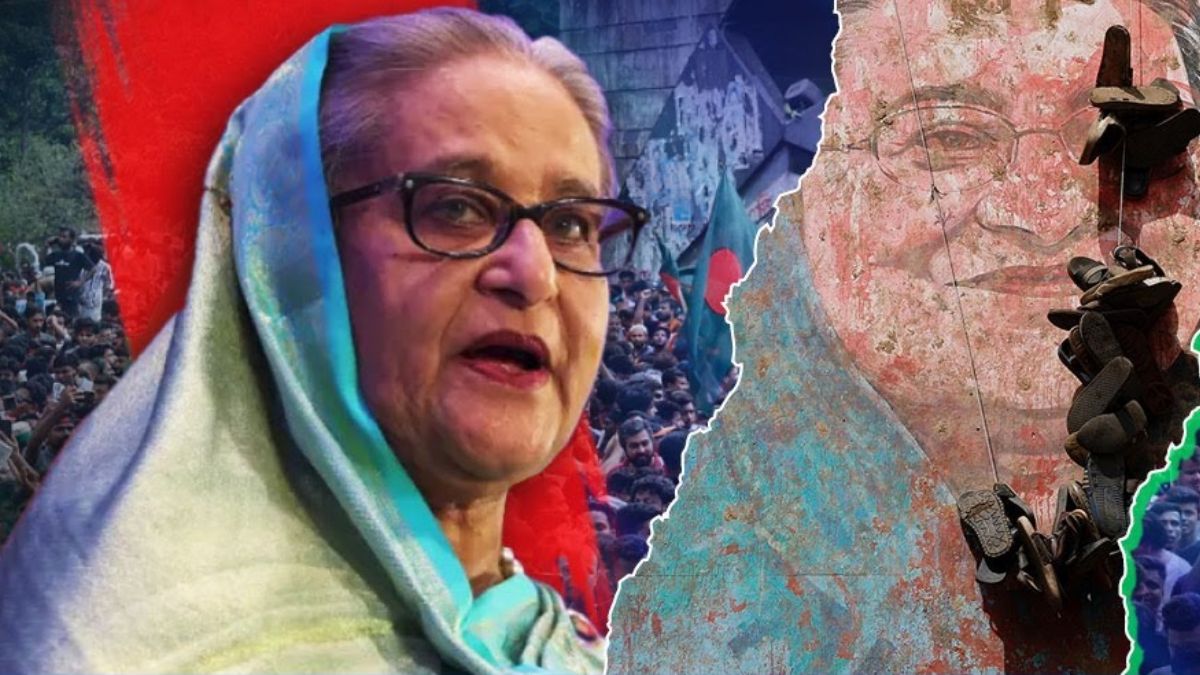)
In a major policy change, the US administration is reportedly planning to curb green card access for citizens of countries already affected by President Donald Trump’s travel ban.
according to the new York Times According to the report, the plan is still under discussion, but if it moves forward, it would make it harder for immigrants to move toward permanent residency in the United States.
According to internal Department of Homeland Security documents reviewed by the outlet, the proposal calls for U.S. Citizenship and Immigration Services (USCIS) to consider certain “country-specific factors” from the travel ban as “significant negative factors” when making decisions on green card applications.
In simple words, if a person is from a country on the travel-ban list, it can only be counted against him during the green card review process.
So why consider this change now? And who might be affected if the revised policy is approved? Here are the details of what we know.
What is the reason behind this change?
There has been no formal announcement yet, but the move appears to be part of a broader effort by the US government to tighten immigration rules for people coming from countries that officials believe do not have strong systems to verify identity documents, according to the report. the new York Times.
Currently, immigration officers evaluate factors such as a person’s community ties, criminal history, and humanitarian needs. The proposed change would add another layer to that process: a risk assessment based on the nationality of the applicant.
President Donald Trump defended the idea, saying that the terrorist attack in Boulder, Colorado showed “the immense dangers posed by the entry of foreign nationals into our country who are not properly vetted.”
According to the draft policy documents, some countries do not share enough background-check information with the US. Others lack credible authorities to issue passports or identity documents. Officials say this limits their ability to determine whether a person is eligible for immigration benefits.
Michael Valverde, a former USCIS official who served for more than 20 years, told NYT It remains to be seen whether applicants will still be able to overcome these automatic negatives, or whether this will effectively become a “de facto ban” for people from those countries.
If implemented, the rule would apply to green cards, asylum, parole and some other discretionary benefits. This will not apply to US citizenship applications.
Countries included in America’s travel ban list
As of the June update, the travel ban prevents people from 12 countries, mostly in Africa and West Asia, from entering the US. NYTThese include:
afghanistan
myanmar
piece of paper
republic of congo
equatorial guinea
eritrea
haiti
iran
Libya
somalia
Sudan
yemen
Apart from this, there are seven more countries which are facing partial restrictions. People from these countries are barred from permanently immigrating to the US and are not allowed tourist or student visas:
burundi
Cuba
laos
Sierra Leone
To go
turkmenistan
Venezuela
These restrictions are not the same for every country, but they all fall under a broader travel-restriction policy that the new green card proposal could now expand.
Who is exempt under the policy?
When the original travel ban was implemented, it did not include all people from the affected countries. According to reports, people who already have a valid visa are allowed to enter the US, and green-card holders, officially known as lawful permanent residents, are also exempted.
There were some other exceptions too. For example, athletes traveling to major international events such as the 2026 FIFA World Cup or the 2028 Los Angeles Olympics are still allowed to apply for entry. Some Afghan nationals and US government employees who qualify for special immigrant visas (SIVs) are also allowed in under the waiver rules.
In the case of Iran, certain religious and ethnic minorities facing persecution are eligible for relief. And beyond these categories, US officials could still offer case-by-case exemptions to those whose entry was deemed to be in the national interest.
Also read:
Is the US considering eliminating H-1B visas completely? What new law is being proposed?
Former Biden officials, critics push back
The proposed change has drawn sharp criticism from former Biden administration officials and immigration policy experts, who say the government is unfairly targeting people based on where they come from, not who they are.
They argue that this policy punishes individuals for the failures or weaknesses of their domestic governments, over which they have no control.
Doug Rand, who served as a senior official at USCIS during the Biden administration, called the approach “a radical change.” Speaking to the NYT, he said, “Now they’re trying to get inside the United States and subvert the expectations of people who are already here. This is an escalation of the Trump administration’s attack on legal immigration.”
Sarah Pierce, a former USCIS policy analyst, shared similar concerns. “There’s no way this policy won’t increase denials… What’s illegal about this policy is that they’re preempting it because someone is from a certain country,” he told the outlet.
Pierce also warned that applying this new standard to people who are already living in the US could make the entire plan legally vulnerable, saying it raises serious questions about fairness and due process.
with inputs from agencies
end of article

)
)
)